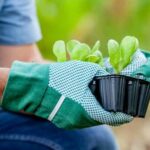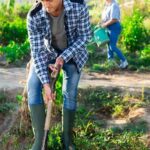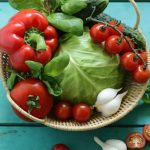Vegetable gardening in Louisiana offers a unique set of challenges and opportunities due to the state’s specific climate and soil conditions. With its subtropical climate and diverse soil types, Louisiana provides an ideal environment for growing a wide variety of vegetables. Whether you are a seasoned gardener or just starting out, understanding the nuances of Louisiana’s climate and soil is crucial for a successful harvest.
Louisiana’s climate is characterized by hot, humid summers and mild winters, creating a long growing season for vegetables. The state’s soil composition varies from sandy along the coast to silty and clayey in other regions, presenting both advantages and obstacles for vegetable gardening.
In this article, we will explore the best vegetables to grow in Louisiana, tips for preparing and maintaining soil, recommended planting schedules, pest and disease management techniques, watering and irrigation methods suitable for Louisiana’s climate, as well as harvesting and storing recommendations. Additionally, we will provide insights into community resources and support available for vegetable gardeners in Louisiana.
Whether you are a home gardener or part of a community garden initiative, this comprehensive guide will equip you with valuable information to maximize your vegetable gardening efforts in Louisiana.
Best Vegetables to Grow in Louisiana
Louisiana’s unique climate and soil conditions make it an ideal location for growing a variety of vegetables. Whether you are a seasoned gardener or just starting out, there are plenty of options that thrive in the state’s warm, humid weather. When it comes to vegetable gardening in Louisiana, it’s important to choose plants that can withstand the heat and humidity while also providing a bountiful harvest.
Heat-Tolerant Vegetables
One of the key factors to consider when selecting vegetables for your Louisiana garden is their heat tolerance. Some vegetables that do well in Louisiana’s climate include okra, sweet potatoes, black-eyed peas, and hot peppers. These plants not only tolerate the heat but often thrive in it, producing delicious crops throughout the summer months.
Root Vegetables
Root vegetables are also well-suited for Louisiana’s soil and climate. Crops such as carrots, radishes, turnips, and beets can be successfully grown in the state’s fertile soil. These versatile vegetables can be planted in early spring or late summer for a continuous harvest throughout the year.
Leafy Greens
Despite the heat and humidity, several leafy greens can thrive in Louisiana. Spinach, kale, Swiss chard, and collard greens are excellent choices for vegetable gardening in Louisiana. When planted in the cooler months or provided with some shade during peak summer temperatures, these leafy greens can provide a nutritious addition to any home garden.
Selecting the right vegetables for your Louisiana garden is crucial for a successful harvest. By choosing heat-tolerant plants as well as root vegetables and leafy greens that thrive in the state’s climate, you can enjoy a bountiful harvest year-round from your own backyard.
Tips for Preparing and Maintaining Soil for Vegetable Gardening
When it comes to vegetable gardening in Louisiana, one of the most important factors to consider is the soil. Louisiana’s soil can vary greatly across the state, but generally, it tends to be on the acidic side and can also have a high clay content.
To prepare the soil for vegetable gardening, it’s crucial to test the pH levels and make any necessary adjustments to achieve a more neutral pH level. Adding organic matter such as compost or well-rotted manure can also help improve soil structure and fertility, making it more conducive for planting.
Maintaining the soil throughout the growing season is equally important for successful vegetable gardening in Louisiana. Regularly adding organic matter and mulching around plants can help retain moisture and suppress weeds.
Mulching with materials like straw or grass clippings can also help protect the soil from erosion during heavy rainfall, which is common in Louisiana’s climate. Additionally, rotating crops each year can help prevent depleting the soil of essential nutrients and reduce the risk of pests and diseases building up in the soil.
One specific technique that can benefit vegetable gardening in Louisiana is raised bed gardening. Raised beds provide better drainage than traditional ground-level planting areas, which is particularly helpful in areas with heavy rainfall. They also allow for more control over the soil composition and easier management of pests and diseases. For those dealing with less-than-ideal native soil conditions, raised bed gardening may be a great option for successful vegetable gardening in Louisiana.
Recommended Planting Schedule for Louisiana
Louisiana’s climate and soil conditions play a significant role in determining the best planting schedule for vegetable gardening. The state experiences hot and humid summers, mild winters, and frequent rainfall, making it ideal for growing a wide variety of vegetables. It is essential to note that Louisiana has three distinct climate zones: north, central, and south. Each zone has its own unique characteristics that need to be considered when planning a planting schedule.
In the southern part of Louisiana, the long growing season allows for multiple plantings throughout the year. Warm-season crops such as tomatoes, peppers, squash, and okra can be planted as early as March or April.
Cool-season crops like lettuce, kale, carrots, and broccoli thrive in the milder temperatures of fall and can be planted in September or October. In the central region of the state, gardeners can also take advantage of two growing seasons but may need to adjust their planting schedule based on local weather patterns.
It is important to research specific planting dates for different vegetables based on the location within Louisiana. Factors such as frost dates, temperature fluctuations, and potential hurricane events should be considered when creating a customized planting schedule for a successful vegetable garden in Louisiana.Organizations such as the LSU AgCenter offer valuable resources on recommended planting schedules based on specific regions within Louisiana.
By following these guidelines and considering local climate conditions, gardeners can maximize their yield and enjoy a bountiful harvest throughout the year in their vegetable gardening in Louisiana.
Pest and Disease Management for Vegetable Gardens in Louisiana
Common Pests and Diseases
Louisiana’s warm and humid climate can create the perfect conditions for a variety of pests and diseases to thrive in vegetable gardens. Common pests that gardeners in Louisiana may encounter include aphids, caterpillars, and spider mites. Meanwhile, common diseases that can affect vegetable plants in the state include powdery mildew, bacterial wilt, and root rot.
Integrated Pest Management
To effectively manage pests and diseases in a vegetable garden in Louisiana, it is important to practice integrated pest management (IPM). This approach involves using a combination of methods to control pest populations while minimizing harm to the environment. Some strategies for IPM include regularly inspecting plants for signs of pests or disease, encouraging natural predators such as ladybugs and lacewings, and using physical barriers like row covers to protect plants.
Organic Pest Control Methods
For gardeners who prefer to use organic methods for pest and disease management, there are several options available. Neem oil can be effective against a variety of pests while also being safe for beneficial insects. Additionally, introducing beneficial nematodes into the soil can help control destructive pests like root-knot nematodes. It’s important to research organic pest control methods that are suitable for the specific vegetables being grown in your Louisiana garden.
By implementing proactive pest and disease management strategies, vegetable gardeners in Louisiana can help ensure healthy plant growth and bountiful harvests throughout the growing season. With careful monitoring and timely intervention, it is possible to minimize the impact of pests and diseases on a successful vegetable gardening experience in Louisiana.
Watering and Irrigation Techniques for Louisiana’s Climate
Louisiana’s climate can pose some challenges when it comes to vegetable gardening. With hot and humid summers, as well as regular rainfall, it’s important for gardeners to implement effective watering and irrigation techniques to ensure the success of their crops. Proper watering is essential for healthy plant growth and a bountiful harvest, so here are some tips for managing watering in Louisiana’s unique climate.
One of the most efficient ways to water a vegetable garden in Louisiana is through the use of drip irrigation systems. These systems deliver water directly to the base of the plants, reducing evaporation and water waste. Additionally, using mulch around plants can help retain moisture in the soil, especially during the hot summer months. Mulching also helps to regulate soil temperature and prevent weed growth, making it a valuable practice for Louisiana vegetable gardening.
When determining a watering schedule for your vegetable garden in Louisiana, it’s important to take into account the amount of rainfall that typically occurs in your area. During periods of regular rain, it may be necessary to adjust your irrigation practices accordingly.
Using rain barrels or other collection methods can also be an eco-friendly way to supplement natural rainfall for watering your vegetable garden. By being mindful of water usage and implementing efficient irrigation techniques, vegetable gardeners in Louisiana can work towards sustainable and successful harvests.
In addition to using efficient watering and irrigation techniques, incorporating drought-resistant vegetables into your garden can also help mitigate potential water challenges that arise from Louisiana’s climate. By choosing vegetables that are suited to thrive in this environment, you can enhance the productivity and resilience of your garden while conserving resources – creating a more sustainable approach to vegetable gardening in louisiana overall.
Harvesting and Storing Vegetables in Louisiana
Louisiana’s warm and humid climate provides an excellent environment for growing a variety of vegetables. Once your vegetables have reached maturity, it’s essential to harvest and store them properly to ensure their freshness and longevity. Here are some tips for harvesting and storing vegetables in Louisiana:
- Harvesting: When it comes to harvesting your vegetables, timing is crucial. Different vegetables have different signs of readiness for harvest. For example, tomatoes should be picked when they are fully colored but still firm, while leafy greens like lettuce and spinach can be harvested when they reach the desired size. Be sure to use clean gardening shears or knives to avoid damaging the plants.
- Storing: Proper storage is key to extending the shelf life of your homegrown vegetables. Some vegetables can be stored at room temperature, while others require refrigeration or freezing. For example, root vegetables like carrots and beets can be stored in a cool, dark place for several weeks, while delicate greens should be refrigerated in a perforated plastic bag to maintain crispness.
- Prolonging Freshness: To keep your harvested vegetables fresh for as long as possible, it’s important to handle them with care. Remove any excess soil or debris before storing them, and avoid washing until right before use. Additionally, proper ventilation and humidity levels in storage areas can help prevent spoilage.
By following these guidelines for harvesting and storing your homegrown produce, you can enjoy the fruits of your labor well beyond the harvesting season. Whether you’re cultivating tomatoes, cucumbers, or okra in your vegetable garden in Louisiana, proper harvesting and storage techniques will allow you to savor the flavors of your homegrown bounty throughout the year.
Community Resources and Support for Vegetable Gardeners in Louisiana
In conclusion, vegetable gardening in Louisiana offers a wealth of opportunities for enthusiasts to grow a wide variety of produce in the state’s unique climate and soil. With the right knowledge and resources, gardeners can successfully cultivate their own fresh and healthy vegetables year-round.
One valuable aspect of vegetable gardening in Louisiana is the availability of community resources and support for gardeners. Whether it’s through local gardening clubs, educational workshops, or online forums, gardeners can connect with like-minded individuals to share tips, troubleshoot issues, and exchange seeds or produce. It’s also a great way to gain insights into regional best practices specifically tailored to Louisiana’s growing conditions.
Additionally, these community resources provide opportunities for gardeners to give back to their communities through initiatives such as community gardens or donating surplus produce to local food banks. By participating in these efforts, vegetable gardeners in Louisiana can contribute to the well-being of their neighborhoods while fostering a sense of camaraderie among fellow gardeners.
As interest in sustainable living and locally sourced food continues to grow, these community resources play an important role in promoting vegetable gardening in Louisiana as a practical and rewarding endeavor.
Frequently Asked Questions
What Fruits and Vegetables Can Grow in Louisiana?
Louisiana’s climate is suitable for a variety of fruits and vegetables. Some common fruits grown in the state include satsumas, strawberries, and blueberries. As for vegetables, popular options include tomatoes, sweet potatoes, okra, and bell peppers.
What Is the Best Month to Start a Vegetable Garden?
The best month to start a vegetable garden in Louisiana depends on the specific plants you want to grow. Generally, the prime time to begin planting is late February through March when the soil has warmed up and the threat of frost has passed.
What Is the Growing Season in Louisiana?
The growing season in Louisiana typically spans from early spring to late fall. With its long frost-free period, most crops have ample time to mature before winter arrives. However, certain cold-hardy vegetables can also be grown during the winter months in some areas of the state.

If you’re looking to get into vegetable gardening, or are just looking for some tips on how to make your current garden better, then you’ve come to the right place! My name is Ethel and I have been gardening for years. In this blog, I’m going to share with you some of my best tips on how to create a successful vegetable garden.





